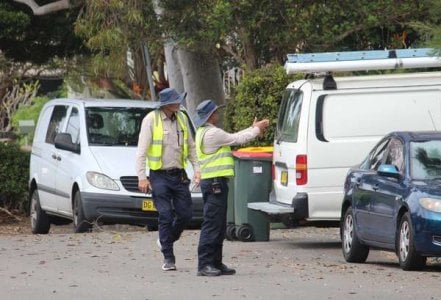No ticket, no fair play: Aussie drivers left in the dark over surge in ‘invisible’ parking fines
- Replies 13
Many take the convenience of driving and parking in our local areas for granted.
However, a recent surge in ‘invisible’ parking fines has left many Australian drivers feeling anything but at ease.
In a startling revelation, councils in one Aussie state have significantly increased the number of ticketless parking fines, leaving drivers blindsided and calling for a system overhaul.
Councils in New South Wales have been called to ‘come to the table’ and ‘deliver a solution which embraces transparency and fairness’ following a significant increase in ticketless parking fines issued to drivers in the state over the past financial year.
In the 2023-24 financial year, NSW saw a staggering 49 per cent increase in the distribution of these fines, with 822,300 ‘invisible’ infringements issued, up from 551,400 the previous year.

This controversial system, introduced by the previous Coalition state government, has caused frustration among motorists, who are often unaware of their fines until weeks after the offence.
The issue has clearly split councils across the state, with 30 councils opting to stick with on-the-spot fines while others refuse to change unless compelled.
Meanwhile, drivers are united in their demand for the system to be abolished.
NSW Minister for Finance Courtney Houssos supported this view, noting that community feedback has strongly favoured councils giving drivers immediate notifications of parking fines.
The ticketless system allows parking officers to ‘send details of a fine directly to Revenue NSW, which then sends an infringement notice by post or the Service NSW app’.
As a result, drivers are frequently unaware of their fines for weeks after they are issued, leaving little evidence for their defence.
This also reduces the deterrent effect, as drivers might accumulate multiple fines before realising they have been charged.
Houssos urged councils to take this into account and to reduce the frequency of issuing these hidden fines.
‘I’m grateful to the councils that have recognised the significant issues with the ticketless parking system introduced by the previous Liberal-National government,’ she stated.
‘I have spoken to mayors and councils from across the state and many agree there is a fundamental issue with a failure to notify drivers at the time of the fine. Councils should come to the table and deliver a solution which embraces transparency and fairness.’
‘If councils aren’t willing to provide a common-sense fix, the NSW Government will step in and use our policy levers to ensure the ticketless parking fine system meets community expectations,’ Houssos added.
Recently, several major councils around Sydney began mailing parking tickets instead of placing penalty notices on vehicles at the time of the offence.
In response, the state government intervened in March, requesting all 128 local councils to stop expanding the ticketless system and suggesting changes due to a rise in fines issued to unsuspecting drivers.
According to a letter from Houssos to councillors, about 45 per cent of penalty notices in the state were for parking violations, with 55 per cent issued through the ticketless system introduced in May 2020.
Overall, parking fines issued by councils in NSW, including both ticketless and paper fines, increased by over 110,000—about 9 per cent—from 2022-23 to 2023-24.
Since March 2024, Houssos and Revenue NSW have been working with councils to ‘understand how they use the ticketless parking fine system’ and address the minister’s concerns about ‘its shortcomings’.
Councils in Blacktown, Hunters Hill, Mosman, and Waverley opted against the paperless scheme, while North Sydney indicated it will not return to it.
The City of Sydney, covering the CBD and nearby areas, is reviewing the scheme as of June, while in Sydney's western suburbs, Canterbury-Bankstown Council will continue to post fines or issue notification cards at the discretion of its officers.
In 2023, paperless fines generated $139 million statewide, according to Revenue NSW data.
Councils where physical tickets were rarely issued include the City of Sydney, North Sydney, Northern Beaches, Burwood, Penrith, Hornsby, and Camden.
The recent backlash against Australian councils over a surge in invisible parking fines highlights growing frustration with the lack of transparency in how these fines are administered.
This issue underscores the importance of being vigilant about parking regulations, as demonstrated by a recent case where a woman challenged her ‘sneaky’ $238 parking fine.
Her stand against the unfair practice serves as a reminder to drivers to stay informed and cautious to avoid falling victim to similar situations.
 We encourage our readers to stay informed about their local council's parking fine policies and to voice their concerns if they believe the system is unfair.
We encourage our readers to stay informed about their local council's parking fine policies and to voice their concerns if they believe the system is unfair.
Have you been affected by the surge in ‘invisible’ parking fines? Do you think they’re just fair, or does the government need to abolish them? Share your experiences and insights with us in the comments below, and let's advocate for a system that serves the community with transparency and fairness.
However, a recent surge in ‘invisible’ parking fines has left many Australian drivers feeling anything but at ease.
In a startling revelation, councils in one Aussie state have significantly increased the number of ticketless parking fines, leaving drivers blindsided and calling for a system overhaul.
Councils in New South Wales have been called to ‘come to the table’ and ‘deliver a solution which embraces transparency and fairness’ following a significant increase in ticketless parking fines issued to drivers in the state over the past financial year.
In the 2023-24 financial year, NSW saw a staggering 49 per cent increase in the distribution of these fines, with 822,300 ‘invisible’ infringements issued, up from 551,400 the previous year.

Ticketless parking fines in NSW surged by 49 per cent in the 2023-24 financial year. Credit: Shutterstock
This controversial system, introduced by the previous Coalition state government, has caused frustration among motorists, who are often unaware of their fines until weeks after the offence.
The issue has clearly split councils across the state, with 30 councils opting to stick with on-the-spot fines while others refuse to change unless compelled.
Meanwhile, drivers are united in their demand for the system to be abolished.
NSW Minister for Finance Courtney Houssos supported this view, noting that community feedback has strongly favoured councils giving drivers immediate notifications of parking fines.
The ticketless system allows parking officers to ‘send details of a fine directly to Revenue NSW, which then sends an infringement notice by post or the Service NSW app’.
As a result, drivers are frequently unaware of their fines for weeks after they are issued, leaving little evidence for their defence.
This also reduces the deterrent effect, as drivers might accumulate multiple fines before realising they have been charged.
Houssos urged councils to take this into account and to reduce the frequency of issuing these hidden fines.
‘I’m grateful to the councils that have recognised the significant issues with the ticketless parking system introduced by the previous Liberal-National government,’ she stated.
‘I have spoken to mayors and councils from across the state and many agree there is a fundamental issue with a failure to notify drivers at the time of the fine. Councils should come to the table and deliver a solution which embraces transparency and fairness.’
‘If councils aren’t willing to provide a common-sense fix, the NSW Government will step in and use our policy levers to ensure the ticketless parking fine system meets community expectations,’ Houssos added.
Recently, several major councils around Sydney began mailing parking tickets instead of placing penalty notices on vehicles at the time of the offence.
In response, the state government intervened in March, requesting all 128 local councils to stop expanding the ticketless system and suggesting changes due to a rise in fines issued to unsuspecting drivers.
According to a letter from Houssos to councillors, about 45 per cent of penalty notices in the state were for parking violations, with 55 per cent issued through the ticketless system introduced in May 2020.
Overall, parking fines issued by councils in NSW, including both ticketless and paper fines, increased by over 110,000—about 9 per cent—from 2022-23 to 2023-24.
Since March 2024, Houssos and Revenue NSW have been working with councils to ‘understand how they use the ticketless parking fine system’ and address the minister’s concerns about ‘its shortcomings’.
Councils in Blacktown, Hunters Hill, Mosman, and Waverley opted against the paperless scheme, while North Sydney indicated it will not return to it.
The City of Sydney, covering the CBD and nearby areas, is reviewing the scheme as of June, while in Sydney's western suburbs, Canterbury-Bankstown Council will continue to post fines or issue notification cards at the discretion of its officers.
In 2023, paperless fines generated $139 million statewide, according to Revenue NSW data.
Councils where physical tickets were rarely issued include the City of Sydney, North Sydney, Northern Beaches, Burwood, Penrith, Hornsby, and Camden.
The recent backlash against Australian councils over a surge in invisible parking fines highlights growing frustration with the lack of transparency in how these fines are administered.
This issue underscores the importance of being vigilant about parking regulations, as demonstrated by a recent case where a woman challenged her ‘sneaky’ $238 parking fine.
Her stand against the unfair practice serves as a reminder to drivers to stay informed and cautious to avoid falling victim to similar situations.
Key Takeaways
- The number of ticketless parking fines in NSW surged by 49 per cent in the 2023-24 financial year.
- Drivers and NSW Minister for Finance Courtney Houssos called for the ticketless parking system to be abolished, urging councils to provide on-the-spot notifications.
- The system, introduced by the previous state government, has led to drivers being unaware of fines until weeks later, causing issues in defence and reducing the deterrent effect.
- Several NSW councils agreed to adjust their operations for instant notification, while others resisted unless there was legislative change; the state government may intervene to ensure the system meets community expectations.
Have you been affected by the surge in ‘invisible’ parking fines? Do you think they’re just fair, or does the government need to abolish them? Share your experiences and insights with us in the comments below, and let's advocate for a system that serves the community with transparency and fairness.







